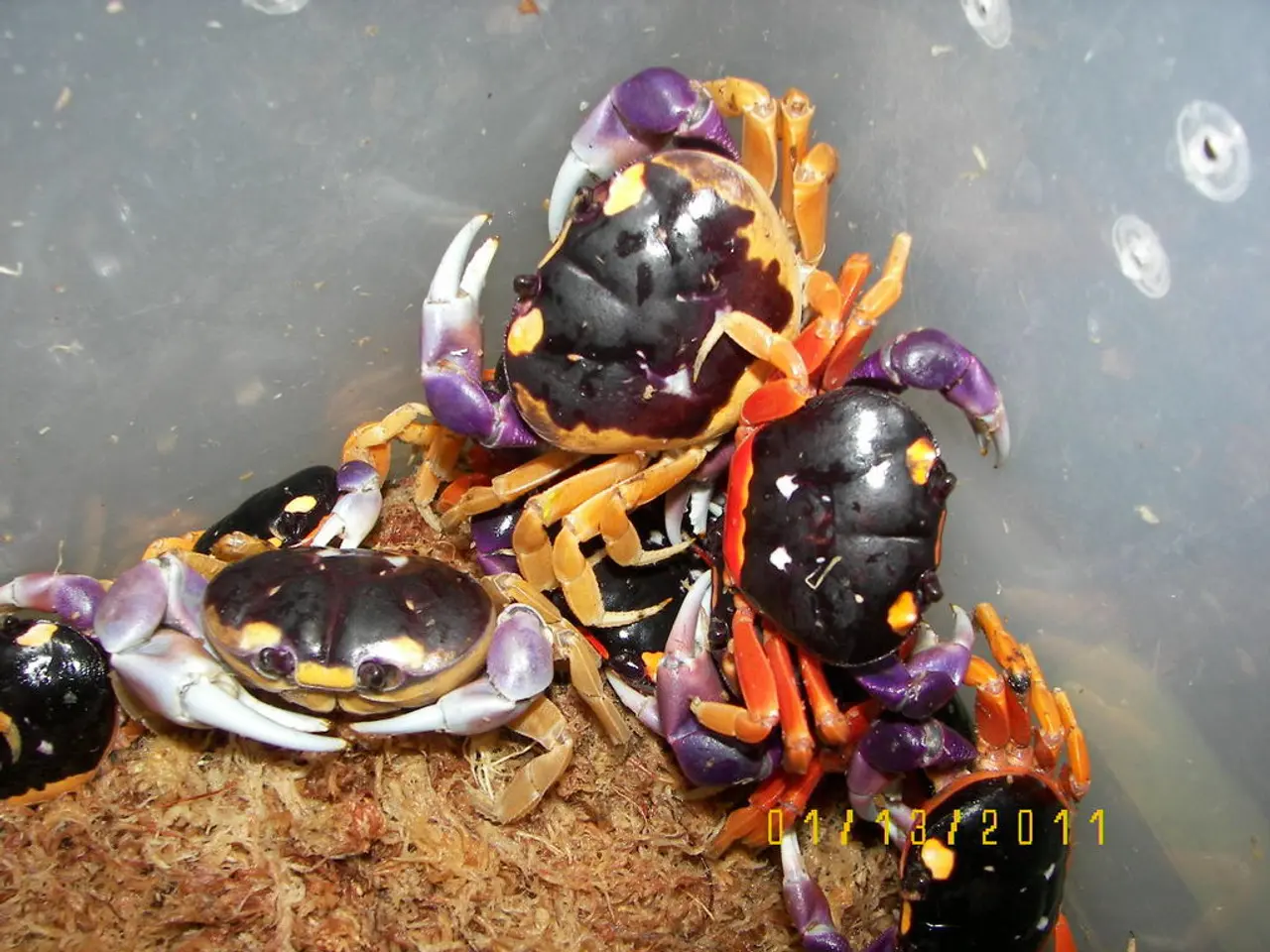Investigating the Intelligence of Crabs: Exploring Cognitive Capabilities in Crustacean Species
Crabs, often overlooked as simple creatures, are proving to be more complex than previously thought. Recent studies have revealed that these decapod crustaceans possess a range of cognitive abilities, including learning, problem-solving, and possibly even social awareness.
Learning and Problem-Solving
Crabs have shown an impressive capacity for learning and problem-solving. For instance, hermit crabs can perform rudimentary cost-benefit analyses, weighing the benefits of a new shell against the risks involved in obtaining it. This behavior demonstrates a form of problem-solving and decision-making, reminiscent of complex processes in humans.
Moreover, crabs have the ability to adapt to changing environments and learn from experiences. In challenging situations, they can adjust their behavior to achieve better outcomes, showcasing their adaptability and learning capabilities.
Social Awareness
While social behavior in crabs might not be as complex as in some other animals, there are observations of communal living and communication. Some species of crabs live in groups and have been observed interacting with each other, suggesting a level of social awareness.
Crabs use chemical signals and visual cues to communicate. This can include warning signals to alert other crabs of potential threats or signals related to mating and territorial behaviors.
Evidence Supporting Cognitive Abilities
Researchers have employed a variety of methods to study crab intelligence. Behavioral studies, neurobiological studies, and comparative studies have provided valuable insights into the cognitive capabilities of crabs.
Behavioral Studies
Observations of crab behavior in controlled environments have shed light on their cognitive abilities. For example, experiments with fiddler crabs have shown that they use visual cues to communicate and coordinate behavior.
Neurobiological Studies
Research on decapod crustaceans has identified complex neural structures that support learning and memory. These studies often involve observing changes in brain activity or structure in response to different stimuli.
Comparative Studies
Comparisons with other animals, such as insects and vertebrates, help contextualize the cognitive abilities of crabs. These comparisons highlight that cognitive processes in crabs are not isolated phenomena but are part of a broader spectrum of animal intelligence.
In conclusion, while crabs do not possess the same level of cognitive complexity as humans or some other animals, they demonstrate significant learning and problem-solving abilities, and their social interactions suggest a form of social awareness. The order Decapoda, which includes crabs, lobsters, shrimp, and prawns, is a focal point for studies investigating invertebrate intelligence.
Furthermore, crabs have shown the ability to learn to avoid specific locations or stimuli that have previously been associated with a negative experience, demonstrating avoidance learning and long-term memory capabilities.
As we continue to unravel the mysteries of crab intelligence, it's essential to remember the importance of ethical considerations when studying these animals. Implementing humane handling and slaughter practices can help minimize suffering for crabs in various contexts, including fishing, aquaculture, and scientific research.
Read also:
- Alcohol's Impact on the Gallbladder: Exploring the Relationship and Further Facts
- Surgical intervention using the TIF method: Details, anticipations, and further insights
- Persisting in the face of tax reductions and layoffs, these pharmacists demonstrate unyielding resolve.
- Investigating the Connection Between Alcohol Consumption and GERD: Exploring Studies and Findings







